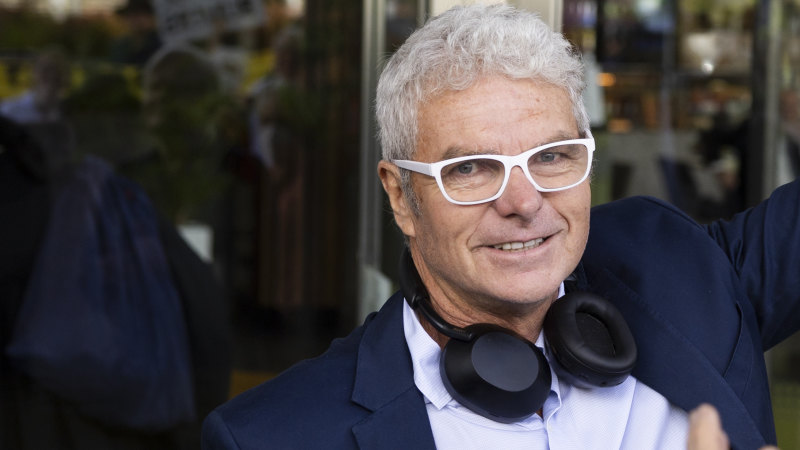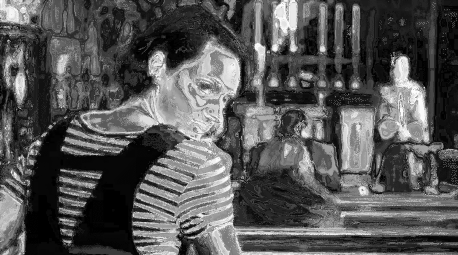Save articles for later
Add articles to your saved list and come back to them any time.
Defence whistleblower David McBride has lost a high-stakes legal bid to scrap a judge’s ruling that he couldn’t argue he was duty-bound to disobey orders, which his lawyer flagged could lead to him pleading guilty to his charges.
The team of the former military lawyer, who allegedly breached orders by leaking confidential information about war crimes allegations to journalists, sought leave to appeal against an ACT Supreme Court ruling that bars his barrister from putting to a jury that he was fulfilling his duty to the public interest in disclosing the documents.
David McBride is facing a criminal trial for leaking confidential military information to the media.Credit: Alex Ellinghausen
In an 11th-hour application to the Court of Appeal, represented by ACT Supreme Court Chief Justice Lucy McCallum, McBride’s barrister, Stephen Odgers, SC, said McBride’s “only real argument” was that he believed he did the right thing in leaking the documents, and there was sufficient basis to raise it with the higher court.
“It may well mean he has no alternative but to plead guilty,” Odgers said of the potential outcome if McCallum ruled against the application.
“There is likely to be significant public interest, and there may well be significant public concern, that it has been held by the ACT Supreme Court that a member of the Australian Defence Force must obey lawful orders, no matter how unreasonable or in breach of fundamental principles of justice they may be, and will commit a criminal offence if he does not.”
But McCallum rejected the application, which she described as “ambitious”, as well as a bid to halt the trial, saying she wasn’t persuaded there was sufficient doubt about the ruling of Supreme Court Justice David Mossop to interrupt the pending trial, scheduled to begin on Monday.
“It is enough to say that his Honour’s ruling on that issue is not obviously wrong,” McCallum said.
McBride has been charged with five offences relating to his disclosure of protected information to journalists, who used it to publish allegations of war crimes by Australian soldiers in Afghanistan.
Following two days of legal arguments, Mossop said on Wednesday he would be directing the jury, which had been expected to be empanelled on Thursday, that McBride had no duty to act in the Australian public interest in circumstances where it conflicted with orders.
“Any duty contrary to law would not be able to be discharged,” Mossop said. “[It] could not be readily described as a duty at all.”
Responding to Odgers’ application in the Court of Appeal, Crown prosecutor Patricia McDonald, SC, told McCallum that if parliamentarians had intended for soldiers to exercise their duties with specific reference to maintaining the public interest, it would have been written into legislation.
Mossop continues to hear a separate application from the Commonwealth to withhold certain information from McBride’s legal team on public interest immunity grounds, contending that its disclosure could damage Australia’s standing in the international intelligence community.
Odgers argued McBride’s defence would be prejudiced without it, and if withheld, could give rise to a separate application to halt the trial.
Mossop will hand down his decision on the Commonwealth’s public interest immunity claim on Friday at 3.30pm.
Cut through the noise of federal politics with news, views and expert analysis from Jacqueline Maley. Subscribers can sign up to our weekly Inside Politics newsletter here.
Most Viewed in Politics
From our partners
Source: Read Full Article




